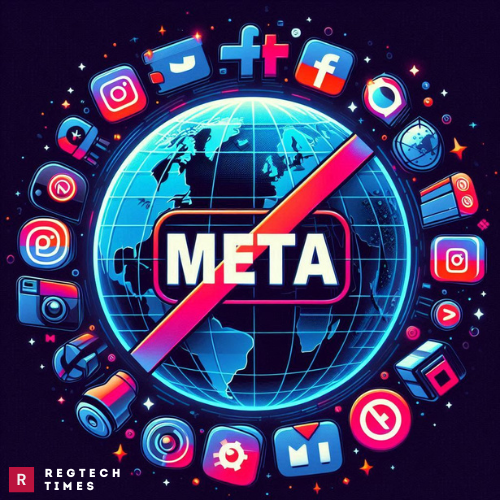In a significant move against foreign influence on social media, the Meta ban announced by Meta targets several Russian state media outlets, including RT (Russia Today) and Rossiya Segodnya. This Meta ban, unveiled late Monday, marks a decisive response to accusations of extensive foreign interference activities. This bold action by Meta highlights the company’s commitment to maintaining the integrity of its platforms amidst growing concerns about disinformation and covert influence operations.
The Meta ban comes on the heels of revelations from a U.S. indictment, which alleges that RT and related entities funneled $10 million through shell companies to secretly fund influence campaigns on major social media platforms such as TikTok, Instagram, X (formerly Twitter), and YouTube. This indictment, recently unsealed in New York, details a sophisticated network designed to manipulate public opinion in Western nations.
Details Behind the Meta Ban
The decision to implement this Meta ban reflects a broader strategy by Meta to tackle disinformation and foreign interference. “After careful consideration, we expanded our ongoing enforcement against Russian state media outlets,” Meta said in a statement. The Meta ban aims to prevent activities that undermine democratic processes and public trust by targeting the sources of covert and deceptive influence operations.
According to the indictment, RT, a prominent state-funded media organization, developed an “entire empire of covert projects” designed to shape public opinion, particularly within Western audiences. One notable aspect of this meta ban involves a covert project that funded and directed an online content creation company based in Tennessee. This operation illustrates the extensive reach and impact of the influence campaigns orchestrated by these Russian state media outlets.
Broader Implications of the Meta Ban
The U.S. Department of Justice has highlighted the gravity of these actions. Prosecutors allege that these covert operations were not only aimed at swaying public sentiment but also at challenging the integrity of democratic institutions. By concealing their activities and exploiting the vast reach of social media, these entities sought to influence narratives and opinions to benefit Russian interests, making the Meta ban a crucial step in mitigating these threats.
U.S. Accuses Russian Media Outlet RT of Engaging in Covert Intelligence Operations
The Meta ban is part of a broader trend where social media platforms increasingly target and disrupt foreign influence operations. Since 2017, Russia has been identified as a major source of covert influence campaigns on these platforms, with such activities escalating notably following Russia’s invasion of Ukraine in February 2022. These operations often involve creating fake accounts, spreading disinformation, and manipulating content to foster discord and confusion among users.
Global Reactions and Future Outlook
In addition to Meta’s actions, the U.S. Department of State has been actively involved in diplomatic efforts to address these covert operations. In September, the State Department highlighted its efforts to inform governments worldwide about Russia’s use of RT and other state media to conduct covert activities. These efforts aim to limit Russia’s ability to interfere in foreign elections and to secure arms for its ongoing conflict with Ukraine.
The Meta ban on RT and Rossiya Segodnya represents a significant milestone in the ongoing battle against disinformation. It sends a clear message that social media platforms will not tolerate foreign interference that undermines democratic values and public trust. As social media continues to play a pivotal role in shaping public discourse, robust measures to address and counteract disinformation are more critical than ever.
Meta’s decisive action with this global ban against Russian state media is a pivotal development in the fight against foreign influence and disinformation. By implementing this meta ban, the company is not only protecting its users but also contributing to a broader effort to uphold democratic integrity and safeguard public discourse. The international community’s response, including coordinated actions by governments and tech companies, will be crucial in addressing the evolving challenges of digital influence and ensuring that social media remains a platform for open and honest communication.



